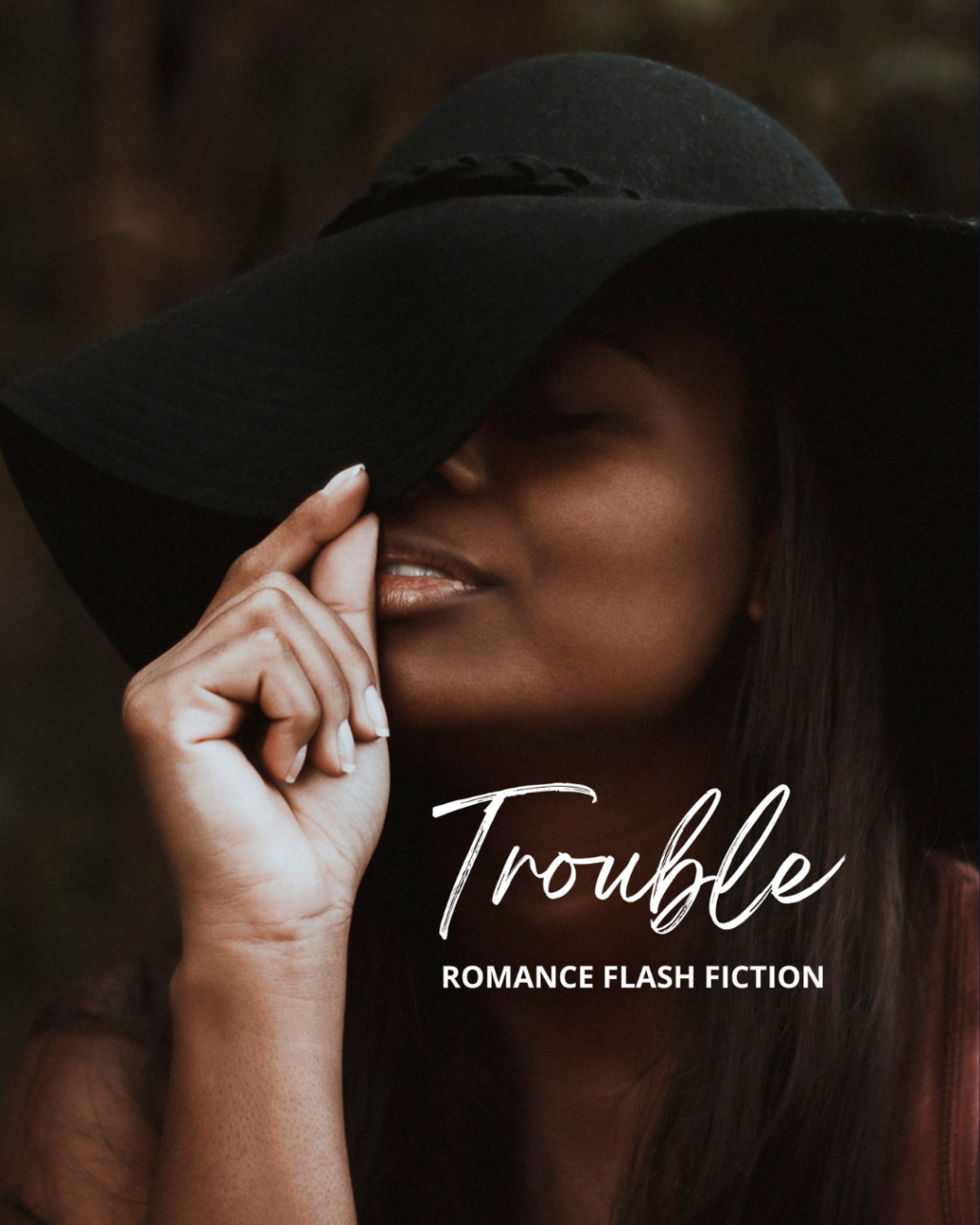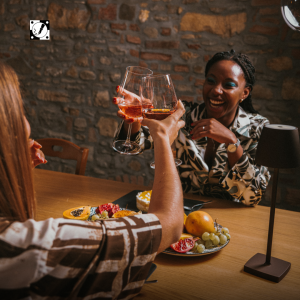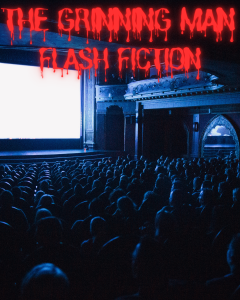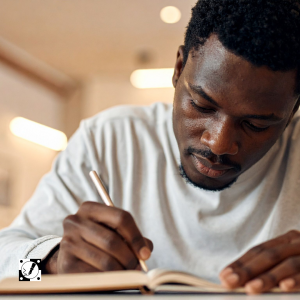Storytelling Saturday: Trouble
6 min read
Trouble had been chasing me all my life. This time, it dragged me before the law—accused of stealing from the very children I’d devoted myself to protecting. I had built an organization that gave them safe spaces, joy, travel, and belonging. Instead of gratitude, I got whispers of embezzlement. Envy is crueler than fact.
And then came Patrick.
The lawyer I hired was everything I wasn’t in that moment—composed, elegant, disarmingly handsome. His presence filled the room like a basin of cool water in a hot, crowded hallway. He stood steady as a lighthouse when the charges raged at us. His confidence smoothed my panic; his charm slipped past my defenses. I was supposed to see only his skills in the courtroom. But every glance, every word, made me imagine something more.
“Very well, Miss Stone—” he began.
“Please… call me Jamie,” I interrupted, daring a smile that surprised even me. The words felt risky, but the relief in his eyes told me I wasn’t alone in the risk.
The Case
Patrick never did address me by a nickname again—at least not in public. He did, however, become a constant presence in the days that followed. He threw himself into my world—meeting the children, playing their games, carrying their laughter as if it belonged to him. They adored him, and I, who had spent years guarding every heartbeat of those kids, found myself unravelling at the edges.
When the case finally turned in our favor, the relief collided with something new and dangerous: desire. We stood outside the courthouse as the sun slid low, the marble warm at our backs. Our eyes met over the murmur of reporters and the rustle of court files.
“Congratulations,” he said, but the word sounded flat beside the tremor in his gaze.
“Thank you,” I whispered, feeling how tired I was in every fiber. The fatigue wasn’t only from the case. It was from pretending I didn’t want him, from pretending I could keep my professional shield intact when his shadow stretched over my thoughts day and night.
That night, the world felt suddenly small and intimate. He walked me to my car with that easy arrogance I’d learned to trust, and when he finally spoke, his voice was lower, laced with an honesty I hadn’t expected.
“Jamie,” he began, and I almost flinched at the sound of my own name on his lips, “I could say this was a purely professional interest, but I’d be lying. I want to know you.”
“I want to be known,” I admitted, surprised at how earnest the confession sounded in the cool glow of the streetlamp. “I want to believe there’s nothing about you that won’t survive the daylight.”
He studied me for a long moment, then gave me a small, dangerous smile. “Then let’s win the daylight together.”
The Escape
Weeks later, instead of leading my staff on the annual trip with the children, I gave in to the gravity between us. I asked Patrick to come away with me. We escaped to the island—an edge of the world where the sea pressed in with a blue that made the air taste faintly of salt and promises.
We left the mainland for an island paradise, a private cove shelved with palms and the kind of quiet that invites confession. The Caribbean sun bathed us in gold, and every night we were consumed by the hunger we had both been denying. We walked beaches where the shells were bright as coins, laughed over wine as the horizon turned rosé, and tangled ourselves together until sleep was a concept too lazy to bother with.
The first night, the sea hummed like a living thing outside our window, a soft, endless lullaby. The moon spilled silver across his skin as if he were carved from the same pale light that kissed the waves. I learned his mouth’s shape the way a map reveals the terrain—by tracing the lines with a fingertip, then tasting the corners of his smile with a breath I hadn’t realized I was holding.
Patrick’s touch burned and healed in the same breath. The tension in my shoulders—years of guarding children, years of pretending I didn’t ache for this man—unwound in places I hadn’t known could loosen. He listened to my stories and the quiet holes in them, the ones I’d learned to fill with work and purpose. He asked nothing for himself that I hadn’t already given to him in the first hour we’d shared, and still he asked for more—only to listen when I offered less.
The nights grew heavy with whispered truths. We spoke of fears and failures, of the burden of responsibility that kept me awake while the rest of the world dreamed. He spoke of a life he’d built on the edge of ethics, choosing law and justice with a stubborn tenderness for the vulnerable. He confessed how he’d learned to protect his own heart by keeping his feet steady and his gaze steady, even when desire burned beneath his cuffs.
And I—Jamie Stone—confessed the truth I had refused to admit even to myself: that I needed him to survive this world without becoming someone I could scarcely recognize. That the possibility of losing him felt like stepping off a cliff into water I didn’t know how to swim in, yet I wanted nothing more than to leap.
The closing days of the trip came like an afterimage—the way the light changed as if the island itself were shrinking back into its own memory. We fought and forgave in the same breath, the way two dancers find a rhythm they didn’t know they’d learned. The kiss we shared after a long, humid afternoon was not just desire, but an oath—an unspoken promise that the trouble was not a mistake to be washed away, but a force to be understood, to be honored.
The Goodbye
But paradise does not last.
When we returned home, Patrick’s work called him away again—another city, another case, another life. He left directions for meetings to happen over coffee, then over flights, then over the brittle certainty that a life with him would always require a pocket full of goodbyes.
I stayed behind, guiding the children through the ordinary rhythm of school and aftercare, while my days felt thinner, as if a storm had peeled back a wall I hadn’t realized I’d built around my heart. The organization kept its smiles and safe spaces, but the laughter sounded hollow without his laughter to echo through the rooms.
We never saw each other again.
Yet even now, I can still feel his kiss like fire against my lips. I still wait. I still hope. And I still pray that this kind of trouble never lets me go.
In memory, the island lingers—the color of rain-warmed corn, the scent of salt grass, the hush of waves under a moon that always seems to be listening. If I close my eyes, I can hear his voice in the quiet of night, guiding me to breathe when fear claws at the edges of a life built for others. I tell myself that love is not a risk to be avoided but a truth to be honored—whether the world believes in us or not.
Sometimes, in the quiet mornings, I see a hint of him in the reflection of a window, a silhouette that belongs to the days when trouble wore a smile and called itself belonging. And I realize belonging isn’t a place, not a city or an island, but a choice—the choice to carry a memory into the next day and the next, to let it lift me when the work ahead is heavy, and to believe that, someday, perhaps, the trouble will return not as a thief in the night, but as a doorway I’m brave enough to walk through.
If that doorway opens again, I’ll walk through with my eyes open, and with the courage I learned on that island—the courage to love, to risk, to keep faith with the memory that made me who I am: Jamie Stone, the woman who believed in children, in justice, and in the possibility—and the danger—of a love that arrives as trouble and refuses to leave.
Want to see your short story featured in our pages or on our website? Click HERE to read our submission guidelines!








